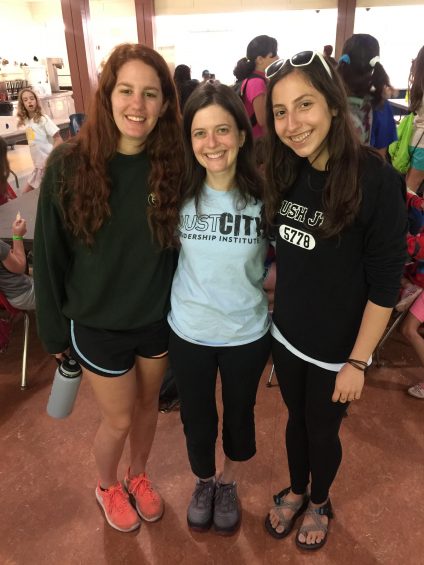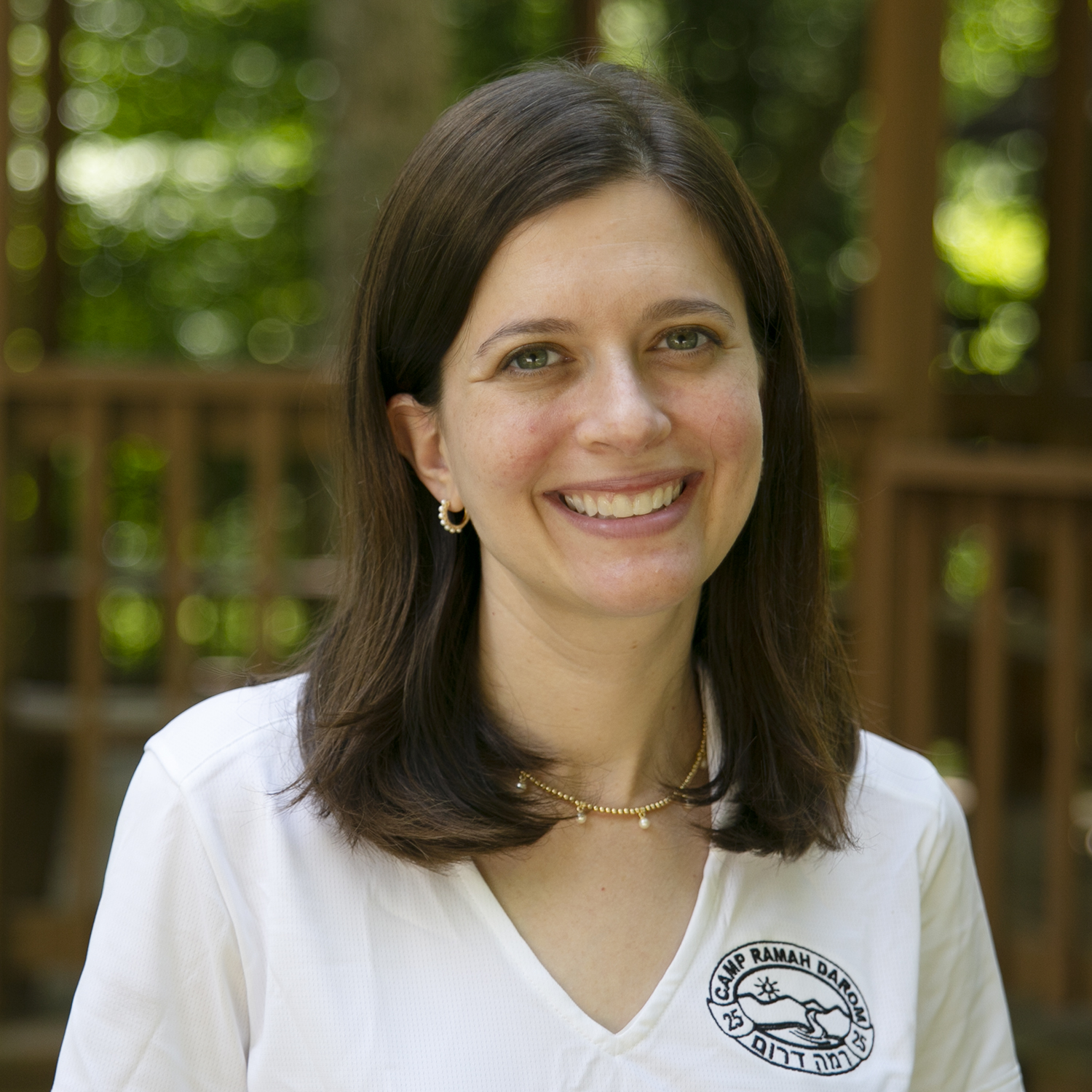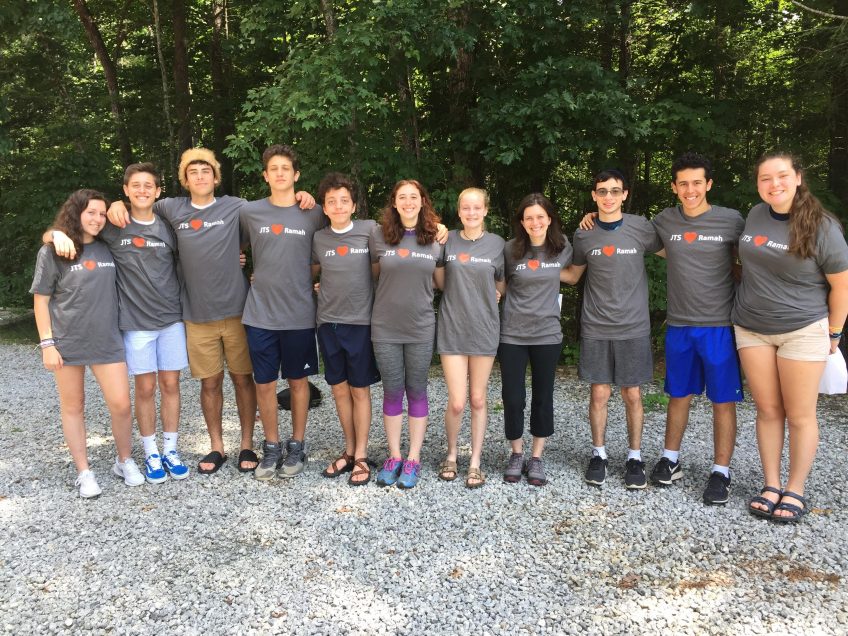“Is this your makom kavod (respected/honored place)?” a counselor asked me right before Kabbalat Shabbat began. The counselor was seated next to me, she was a one to one for a special needs camper, and was also eager to tell me about her wonderful experience when she was a List College Student long before my time working at JTS. I had taken a seat in the back of the amphitheater so that I could have a full view of the davening (praying) experience and soak it all in. It had been over 13 years since I had been at Ramah Darom, a wonderful place that shaped me into the Jewish leader I am today. When she asked me the question, I said, “yes,” though I thought that maybe she meant to say makom kadosh (holy place)?
What I have always loved about Ramah is the joyful Judaism that radiates each day where children don’t even realize they are learning.

I had the privilege to visit both Ramah Darom and Ramah Berkshires in my role as Associate Dean of List College and the Kekst Graduate School to speak about JTS, teach and recruit. What I have always loved about Ramah is the joyful Judaism that radiates each day, where children as the person who drove me to the train station back to NYC from Berkshires said, “do not even realize they are learning.” It’s the place where the head of Yahadut (Judaics) at Ramah Darom talked about the importance of Jewish role models who demonstrate by being themselves how great it is to be a Jew. I would not have received an MA in experiential education if I was not 100% convinced that the best Jewish education out there is one that can be lived. How else can someone truly appreciate what Jewish life offers without fully experiencing it?
Going back to Ramah Darom, in particular, was meaningful as a staff alumna, and by being there for a few nights, I was really able to integrate. Thank goodness I was working while I was there, contributing in some way to make clear that the Jewish education you get at camp can, and should be, continued after camp (and JTS is a perfect place to do so)! I don’t think I can actually be at any Ramah camp without being part of the educational framework, and in truth, it was hard not to pitch in and raise my hand to quiet the chanicim (children) for meals or make announcements b’Ivrit!
The community at Ramah Darom had become even more compassionate and welcoming, and I am so proud to see how the effects of their Tikvah programming have rippled through Camp.
In most ways, Ramah Darom was the same, save for a few beautiful new buildings. There were the same sichot (conversations) on the porch of the chader ochel (dining hall) between rosh edah (unit head) and tzevet (staff) member and between tzevet member and camper. There was the same level of care for the individual to ensure that he or she was fully incorporated in activities. There were the same announcements, the same songs, and even the same traditional meals served on certain days (Wednesday night cookout, Friday pizza lunch, and Shabbat Mississippi mud brownies). The most striking difference and the best change was seeing the inclusion of special needs campers and staff members. Seeing the dedication of the staff to make sure that everyone is treated btzelem elohim (in the image of G-d) was moving beyond what I can write here. The community at Ramah Darom had become even more compassionate and welcoming, and I am so proud to see how the effects of their Tikvah programming have rippled through Camp.
When someone goes through Camp from camper through staff, they internalize a positive association with their Judaism, a love a Jewish community and values, that influences the rest of their lives.
I can’t help but see the coincidence that the parsha, as I ended my time at Darom, was Eikev which includes words we recite following the Shema. Vlmadata otem et benechem- we should “teach these words to our children.” And what should we teach? Not just the words of the shema itself but of the v’ahavta that begins by saying we should love G-d. I can’t think of a better way to fulfill those obligations than by sending our children to Ramah. When someone goes through Camp from camper through staff, they internalize a positive association with their Judaism, a love a Jewish community and values, that influences the rest of their lives.
Ramah is my “makom kavod.” It is a place that I respect, revere and laud whenever I can because I am confident it is the most successful tool we have to ensure a bright Jewish future.
At the end of each of my Ramah visits this summer, I was ready to go back home because of the needs of my family. But, I can guarantee that we will be back. It certainly won’t be 13 years, and probably not even 13 months before we return! And to the staff member who asked me that question before Shabbat, I think she may have in fact had it right all along. Ramah is my “makom kavod.” It is a place that I respect, revere and laud whenever I can because I am confident it is the most successful tool we have to ensure a bright Jewish future.
Anna Serviansky is Assistant Dean, List College


